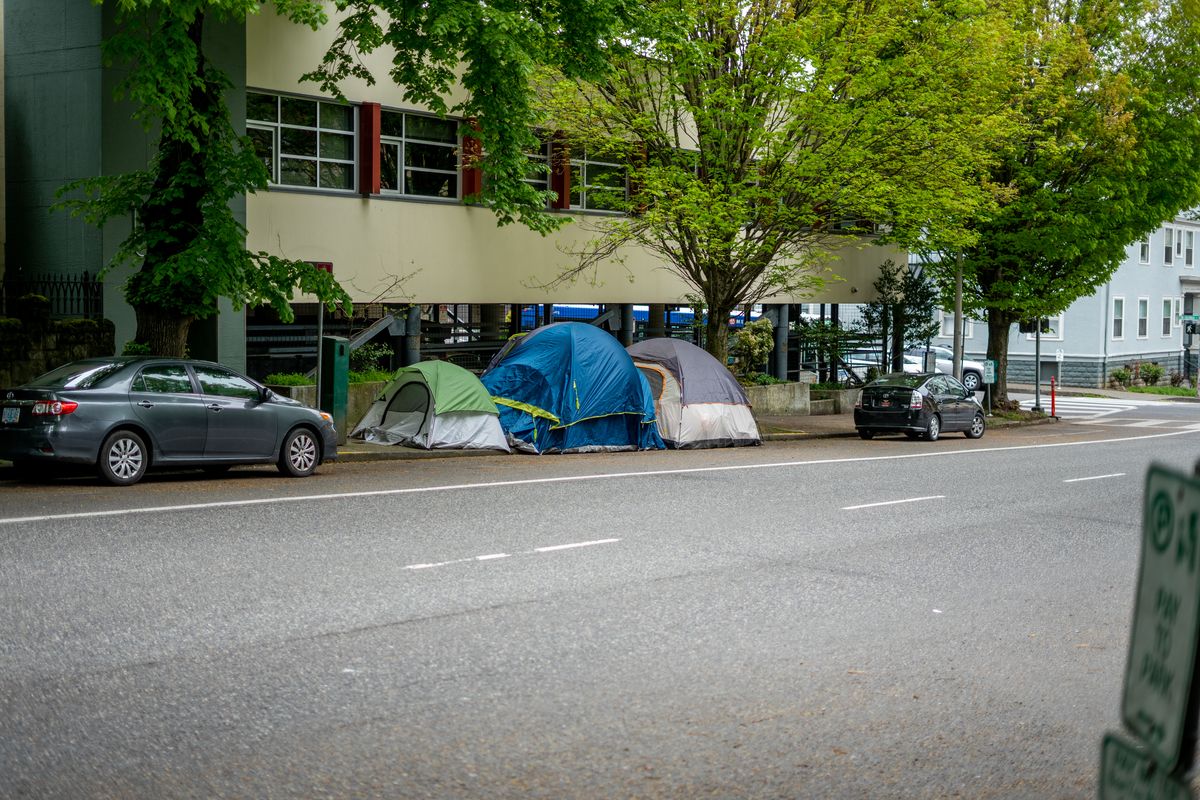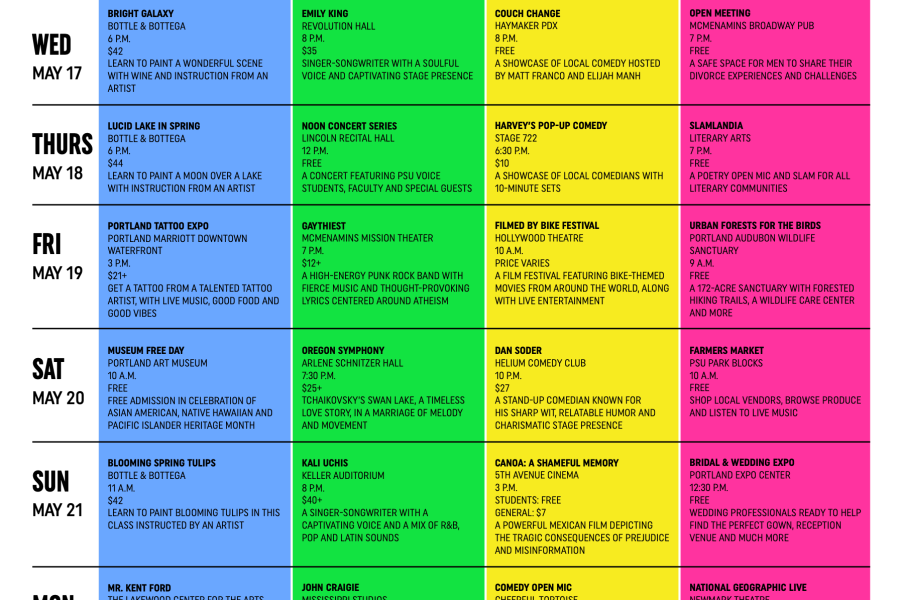Are houseless people criminals simply for existing? The answer is no, they are not—yet, Portland’s city government is implementing a plan to make the answer to that question “yes” on an official level. This is an outrage because the houseless did not ask for this life. We should be helping houseless people get a job and improve their living conditions, not criminalizing them.
According to OPB, “The Portland City Council on Thursday moved forward with a $27 million package to pay for a plan that would ban street camping and force people into city-run encampments.” Although it is good that this plan would give the houseless shelter from the elements, it still dehumanizes the houseless by telling them they must go to these shelters.
Many houseless people do not want to go to city shelters for various reasons. Dave Cooper, a houseless man who lives on the streets of Portland, told KGW, “‘I don’t want to go to a shelter.’” As the report stated, “Cooper said shelters aren’t a viable option because of concerns over privacy, personal safety, and a strict curfew.”
We need to give the houseless ways out of houselessness other than forcing them to live in shelters. One possible program could be for the city to give them jobs that need to be filled. There are already programs that can help with this issue—one example of a program like this is the Peer-Led Outreach Initiative. “This pilot program compensates unhoused Portlanders for engaging their peers to ensure the safety and success of City projects,” according to the Portland city website. “After receiving training, outreach workers with lived experience are sent to share information, have a conversation, and find a solution. Workers receive $20 per hour to conduct outreach or $25 per hour to coordinate outreach teams, which is paid by project budgets.”
This is a step in the right direction, because it gives the houseless a way to eventually live a more stable life—and it is a much better solution than simply telling houseless people to live in city-run camps and labeling them as criminals if they disagree. It is because of this that these resources need to be used and advertised more.
This is because these programs help the houseless a lot. Consider the Community Volunteer Corps, which “works with people who are in recovery or struggling with homelessness through volunteer work and manual labor,” as reported by KGW. “The program is currently helping nearly 100 people. In the past 13 years, they’ve volunteered more than 170,000 hours and nearly 2,000 people have graduated.”
In addition to jobs programs, the least we can do for the houseless is find housing for them other than crowded shelters. One way this is being done is through supportive housing services provided by the Metro government, which provide houseless people housing placement, rental assistance and advocacy services. The program exists due to the fact that “[i]n May 2020, voters in greater Portland approved Measure 26-210 to fund services for people experiencing or at risk of homelessness. Thanks to voters, Metro now works with Clackamas, Multnomah and Washington counties to reduce homelessness through programs and services that help people find and keep safe and stable homes,” according to the Metro site. This is much better than stuffing the houseless into shelters and pushing them out of sight, dehumanizing them. They are human beings who deserve our compassion and a warm, comfortable place to sleep at night.
Programs like this are a start to a better alternative to legally forcing the houseless to move and marking them as criminals if they do not comply. Yet, more can and should be done. This is why there needs to be further programs that help with this, such as supporting programs that transition them into housing, helping them with loans for houses, providing classes to teach them how to handle the loans, etc. But for now, these currently-existing programs are better alternatives to criminalizing the houseless, and in the future hopefully our government officials will think of the houseless as people who need to be lifted up instead of swept under the rug.






